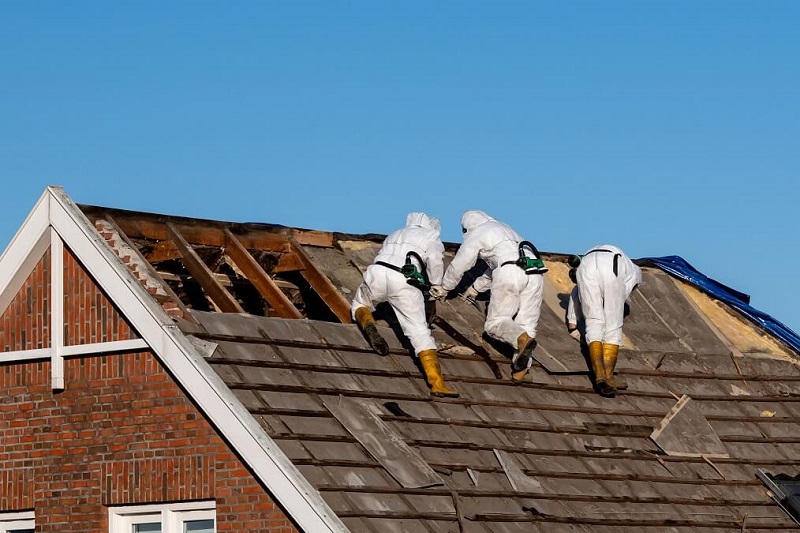Why Asbestos Testing is Essential during Home Renovations
Ever embarked on your dream home renovation, only to hit a nail-biting roadblock? Ever wondered about the seemingly innocent, white-textured building materials lurking behind your vintage walls or ceiling? What if it turned out to be the infamous, health-hazard asbestos? If you are nodding your head in dread, then the topic of today’s post — the importance of asbestos testing in house renovations — might hit quite close to home.
Why should you be concerned? Asbestos, although was once frequently used in the construction industry due to its heat-resistant properties, is infamously linked to certain serious health conditions. Our discussion doesn’t aim to strike you into house-flipping terror, but rather enlighten you about its potential dangers and the vital need for its timely detection and proper management.
With its history of use in various building sectors till the late 1980s, asbestos could be hibernating in any corner of your renovation dream. So, before whipping out your sledgehammers and starting on the transformation journey, let’s dive into the multiple facets that make asbestos testing an essential part of home renovations.
Decoding Asbestos & its Possible Hideouts
Understanding the enemy at hand forms the crux of any battle. Asbestos comprises six naturally occurring fibrous minerals, which become airborne when disturbed. Once inhaled, they can cause diseases like asbestosis, lung cancer, and mesothelioma.
Beloved due to its heat-resistance, strength and insulating properties, asbestos found a home in a diverse range of building materials. Some of its top hideouts include insulation, flooring, roofing, and even popcorn ceiling. Therefore, any kind of demolition or renovation can disturb asbestos, leading to its release into your home environment.
Gauging its ubiquitous presence underscores the requirement for asbestos testing as a precautionary measure before any home renovation or demolition project.
Tackling the Asbestos Conundrum: When & Why to Test
Pondering over the asbestos conundrum and questioning its testing prerequisites is a smart road to embark on. When should you test for asbestos? A pre-1980s build, a planned renovation or simple curiosity fueled by health concerns are legitimate triggers for asbestos testing.
The prime reasons to conduct asbestos testing revolve around health, the housing market, and legalities. Breathing in asbestos fibres, as discussed, leads to serious health implications. Also, in the home sale process, the presence of asbestos can drastically lower market prospects. Furthermore, it’s a legal prerequisite to manage asbestos risks in certain jurisdictions. Thus, not considering asbestos testing could lead to dire cost, health and legal implications.
The Step-by-Step of Asbestos Testing
Professional intervention when testing for asbestos is a must to ensure safety. Typically, testing involves collecting samples from suspected areas of your home while maintaining proper safety measures to prevent contamination.
These samples are then analysed in a laboratory through microscopy. If detected, professionals will guide you about potential next steps which could involve encapsulation or removal depending on the extent and condition of the asbestos.
Therefore, the process of asbestos testing is multifaceted but necessary to ensure a safe living environment.

Understanding the Potential Impact
The revelation of asbestos in your house isn’t certainly something to be thrilled about. It could mean an induction into a complex remediation process or worst-case scenario, abatement. This could tangibly delay your renovation plans or inflate budgets.
On the mental front, living with the knowledge of potential asbestos exposure could lead to chronic anxiety, influencing your everyday life quality.
Preparing yourself to face this potential impact is a proactive move that will aid in smoother navigation through asbestos-related intricacies.
Asbestos Testing: Pros & Cons
Although it may be tempting to skip testing to save time or money, understanding the pros and cons of testing can make this decision easier.
The advantages of asbestos testing include protecting your health and that of your family, potential buyers, and renovators; potential increase in property value (after asbestos remediation); and legal compliance.
On the flip side, the cons could include a temporary increase in exposure, potential high costs associated with testing and remediation. Despite these cons, many would argue ensuring health safety should always take precedence, outweighing these short-term disadvantages.
Closing Thoughts: Wielding Caution & Awareness
In summary, undertaking asbestos testing as part of your home renovation strategy stands as a non-negotiable for anyone living or working in homes built before the 1980s. While it does pose certain challenges like the possibility of temporarily increased exposure or added financial burden, the reality of potential health risks far outweighs these initial concerns.
Ignorance may be bliss for some, but not when dealing with potential asbestos. With millions affected due to asbestos-related diseases worldwide, it’s essential to swing the home renovation hammer fuelled with the right knowledge and professional support. Be intelligent home renovators, always put safety first and remember – when in doubt, get it tested.



